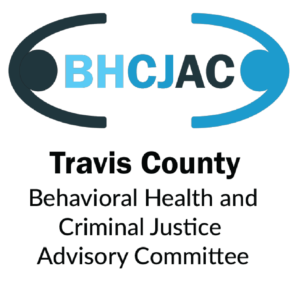TRANSPARENCIES
A monthly newsletter from Integral Care.
A monthly newsletter from Integral Care.

A Message From Our CEO
As the Texas Legislature heads back into session, a major focus will be funding for the new Austin State Hospital (ASH). The reimagined state hospital isn’t just a new building, it’s a redesign of the mental health delivery system. An effective redesign would mean that our mental health system would have the right services that prevent people from being hospitalized and could also help them return to the community with the appropriate supports following a hospitalization.
 One of the biggest challenges surrounding ASH is that 75% of ASH patients are criminal justice-involved individuals who await competency restoration. Last month, 14 people were in jail waiting for a bed at ASH to go through competency restoration. To ensure people receive the right level of care, we must expand local treatment options, like Integral Care’s Community Competency Restoration Program, which supports adults in the criminal justice system who have been found unable to stand trial. Expanded community-based options could move people out of jail more quickly and avoid long stays at ASH which are costly to the state and local communities.
One of the biggest challenges surrounding ASH is that 75% of ASH patients are criminal justice-involved individuals who await competency restoration. Last month, 14 people were in jail waiting for a bed at ASH to go through competency restoration. To ensure people receive the right level of care, we must expand local treatment options, like Integral Care’s Community Competency Restoration Program, which supports adults in the criminal justice system who have been found unable to stand trial. Expanded community-based options could move people out of jail more quickly and avoid long stays at ASH which are costly to the state and local communities.
In an ideal world, fewer individuals with mental illness and/or substance use disorder would become involved in the criminal justice system in the first place. People would have treatment and support through community services in the earliest stage of their illness to maintain health and stability, thereby preventing engagement with law enforcement. Progress is possible when we have sufficient funding for robust services that accommodate the growing need in our community.
 Strong, viable mental health care and substance use disorder alternatives are critical to preventing the overuse and inappropriate use of the justice system. Launched in 2012, the Travis County Behavioral Health & Criminal Justice Advisory Committee is a collaborative of city and county health and criminal justice entities, plus advocacy and peer stakeholders working together to tackle this issue. They partner to ensure people get the care and treatment they need at every step of the criminal justice process. Judge Nancy Hohengarten, who helped form the advisory committee says, “It is a way for the community to examine its criminal justice system in a very thorough, pragmatic way and then go about tackling the problem by looking at it as – you divert where you can.”
Strong, viable mental health care and substance use disorder alternatives are critical to preventing the overuse and inappropriate use of the justice system. Launched in 2012, the Travis County Behavioral Health & Criminal Justice Advisory Committee is a collaborative of city and county health and criminal justice entities, plus advocacy and peer stakeholders working together to tackle this issue. They partner to ensure people get the care and treatment they need at every step of the criminal justice process. Judge Nancy Hohengarten, who helped form the advisory committee says, “It is a way for the community to examine its criminal justice system in a very thorough, pragmatic way and then go about tackling the problem by looking at it as – you divert where you can.”
There are multiple touchpoints in the system where partners work together to connect people with mental health issues to the right care. Integral Care’s Mobile Crisis Outreach Team directs people to treatment and care instead of arrest. If there is an arrest, Central Booking counseling staff screen the individual and have an option to divert them to inpatient treatment or Integral Care’s Judge Guy Herman Center for Mental Health Crisis Care. If this isn’t an option, the Travis County District Attorney, Pre-Trial Services, Judges and others work with mental health stakeholders to connect people to treatment in jail.
Our goal is to avoid a cycle of incarceration and recidivism for individuals with behavioral health diagnoses – an issue for communities nationwide – though challenges remain for our community systems. Limited affordable housing and substance use treatment resources are serious barriers for individuals leaving jail or prison. Lack of affordable housing is particularly serious for a person experiencing mental illness, who may not be able to work or qualify for benefits like Social Security.
Collaboration is key to identifying ways that we can improve local systems, strengthen how they work together and divert more individuals into treatment and away from incarceration. Integral Care is proud to work closely with our justice system partners to achieve optimal outcomes for everyone in our community.

David Evans
Chief Executive Officer
ANEW

Reentry to the community is a critical stage for individuals involved in the criminal justice system. They may have lost their home, car, relationships and jobs while in jail or prison.
ANEW provides individuals on parole and probation with community-based behavioral health treatment services and case management support. That includes help accessing housing, jobs and benefits as well as training to improve their daily lives, in the form of anger management, anxiety and Dialectical Behavior Therapy groups. In addition to providing services in an Integral Care clinic and out in the community, we are co-located at the Austin Transitional Center, where we serve individuals released without an approved home plan.
ANEW is funded through Texas Correctional Office on Offenders with Medical or Mental Impairments (TCOOMMI). The team works closely with partners from the Texas Department of Criminal Justice and Travis County Community Justice Services. Together, they serve approximately 600 individuals per month. Our staff of mental health professionals work with individuals a minimum number of hours per week and the full interdisciplinary team meets with the individual monthly. Here’s what one client has to say about ANEW:
“It’s so helpful to have my probation officer, rehabilitation specialist, and my doctor working as a team to help me get myself back together again. It has really helped me stay committed and out of trouble. I don’t know where I’d be right now without all this help.”
A supportive, comprehensive continuum of care for each individual reintegrating back into the community reduces recidivism. It also ensures individuals have the tools they need to reach their full potential and contribute to our community.
Travis County Behavioral Health & Criminal Justice Advisory Committee
 The Travis County Behavioral Health & Criminal Justice Advisory Committee is guided by the shared value that the mental health care and substance use disorder needs of individuals require alternative solutions to a traditional criminal justice system approach. The committee of 24 is a collaborative of Austin and Travis County entities (such as Downtown Austin Community Court, Austin Police Department and Central Health) and behavioral health stakeholders (such as Integral Care, NAMI, members of the advocacy community and individuals with lived experience). They are dedicated to ensuring that people have opportunities to get the care and treatment they need at every step of the criminal justice process.
The Travis County Behavioral Health & Criminal Justice Advisory Committee is guided by the shared value that the mental health care and substance use disorder needs of individuals require alternative solutions to a traditional criminal justice system approach. The committee of 24 is a collaborative of Austin and Travis County entities (such as Downtown Austin Community Court, Austin Police Department and Central Health) and behavioral health stakeholders (such as Integral Care, NAMI, members of the advocacy community and individuals with lived experience). They are dedicated to ensuring that people have opportunities to get the care and treatment they need at every step of the criminal justice process.
The committee has developed a planning partnership that both supports persons with behavioral health needs and promotes public safety. Their Sequential Intercept Model Mapping Project was determined to be the best practice for mental health criminal justice planning. The plan identifies “intercept” points – opportunities at each step of the criminal justice process – where people should be diverted from the system if appropriate and/or connected to the help they need. A 2015 report detailed information for programs and services at each of the intercepts – from the initial encounter with law enforcement to jail and court, reentry, and community corrections. It includes an “Intercept 0” for community services, recognizing that early intervention for behavioral health issues is the best diversion.
Some key recommendations from the group are:
January 2019: Stronger Outcomes Through Collaboration
December 2018: Looking ahead to the 86th Texas Legislature
November 2018: How Tech is Changing the Face of Mental Health
October 2018: A Few Questions Could Help Save a Life
September 2018: Anyone Can Save a Life
August 2018: A Milestone Moment
July 2018: Equity in Mental Health Care for All
June 2018: Expanding Services for Veterans
May 2018: Your Mental Health Toolkit
April 2018: Time of Terror Calls for Increased Emotional Support
March 2018: Stopping the cycle of incarceration for individuals with mental illness
February 2018: Equity in mental healthcare for everyone
January 2018 : Improving Mental Health Through Partnership & Collaboration
December 2017: Strength Through Community
November 2017 : Healthy Lifestyles Improve Well-Being
October 2017 : National Child Health Day
September 2017 : Strengthening Families and Communities